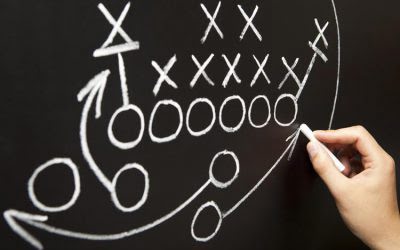Sober living
Alcohol Use, Abuse, and Depression: Is There a Connection?
A 2020 review suggests that up to 60% of people living with depression will experience at least one relapse episode in their life. According to a 2017 study in England, this is likely to occur within 6 months after treatment. Using fMRI, Sinha and colleagues (2007) compared alcohol-dependent individuals abstinent from alcohol for 4 weeks with social drinkers to assess brain structural changes and also functional responses to stress, alcohol cues, and neutral relaxing guided imagery. Alcoholic patients showed greater activity in the ventromedial prefrontal cortex, the ventral striatum, insula, and specific regions of the thalamus and cerebellum during the neutral-relaxing condition (Sinha 2007; Sinha and Li 2007). These findings indicate that abstinent alcoholics show overall hyper-responsivity of the medial prefrontal and striatal-limbic regions, with no differences in brain responses to the neutral relaxed and stressful cues (Sinha and Li 2007; Sinha et al. 2007a). Hyperresponsivity of prefrontal and striatal-limbic regions is consistent with an overall kindling2 process, which blunts the neural informational processing responses to stressful stimuli, resulting in a dysregulated response to stress in alcoholics (see also review by Breese et al. 2011).
About half of the people who experience an episode of depression for the first time will remain well. For the other half, depression can return one or more times throughout their lives. There was a statistically significant association (P value 0.002) between depression and the level of alcohol dependence at intake. Participants with an AUDIT score of 19 and above were more likely to be depressed.
How Alcohol Abuse Can Factor into Depression
For example, the criterion of legal problems related to alcohol was removed, and the criterion of alcohol craving was added. Thus, where possible, this review identifies which version of the DSM was used in a study. Conclusions
A diagnosis of current major depression at entry into inpatient treatment for alcohol dependence predicted shorter times to first drink and relapse in women and men.

Many studies have found that alcohol dependence is closely linked to depression. When it comes to diagnosing an alcohol use disorder and a major depressive disorder, it’s important to address them simultaneously, as they can significantly impact your recovery. However, https://ecosoberhouse.com/article/alcohol-and-dopamine-how-does-it-affect-your-brain/ alleviating depression does not resolve the alcohol use disorder. In some cases, you may receive a dual diagnosis of a major depressive disorder (MDD) and an alcohol use disorder (AUD). This co-occurring disorder isn’t uncommon, but it can be difficult to treat.
More on Depression
Not getting enough sleep or quality sleep only makes you feel lousy the next day. Also, the more you drink, the less inclined you are to get outside and exercise. You may also trade off calories and skip healthy meals so you can drink. Alcohol abuse also leads to more isolation, as you choose to drink alone.
- The substantial variability in the course of co-occurring AUD and depressive disorders may reflect discrete underlying mechanisms, requiring distinct treatment approaches.
- These disorders are characterized by disrupted mood (e.g., low, numb, or irritable), along with an array of cognitive (e.g., feelings of worthlessness and difficulty concentrating) and physical (e.g., fatigue and lack of energy) symptoms.
- As briefly discussed earlier in this article, the family studies are far from definitive because of difficulties in the methodologies used.
- These feelings can stem from a variety of factors, such as the loss of a loved one or overwork.
Depression relapse is when you experience symptoms of depression after a period of remission. Relapse into alcoholism is less likely if you attend rehab, dedicate yourself to a recovery plan and avoid becoming overconfident in your ability to prevent relapse. Relapse is usually alcohol relapse rate triggered by a person, place or thing that reminds a person of alcohol. When the brain processes the memory, it causes cravings for the substance. When physical relapse happens, people in recovery from liver damage risk a recurrence of alcohol-related liver disease.
Alcohol and Depression
Similarly, in the absence of clear evidence of a long-term major anxiety disorder that predates the onset of alcoholism or that remains intense after an extended period of abstinence, few indications exist for using medications related to anxiety for alcoholics. Panic attacks that are likely to develop during alcohol withdrawal are also likely to diminish in frequency and intensity on their own without medications (Schuckit and Hesselbrock 1994). Because little evidence exists of an increased risk for obsessive-compulsive disorder among alcoholics, pharmacological treatments aimed at this severe anxiety condition also are inappropriate in the absence of additional evidence of an independent anxiety syndrome. However, treating most alcoholics’ depressive symptoms might not require the use of antidepressant medications.
- In Kenya a study by Ndetei et al. showed that there was positive correlation between major depressive illness, panic disorder, and alcohol abuse among patients admitted at the main referral psychiatric hospital [8].
- Mental health professionals can provide support and guidance and may recommend various treatment options such as therapy, medication, or a combination of both.
- Both the P.I and the CBHW reports on the drinking status of the participants were compiled weekly.
- That’s why your doctor or psychologist will work with you to create a treatment approach that addresses both issues.
- Even if they don’t improve immediately, you’ll probably have an easier time doing something about them when you don’t have to deal with physical symptoms, too.
- Therefore, for the purposes of our analyses, those with unknown drinking status were considered to have had a relapse at the time that they were unavailable for follow-up.
